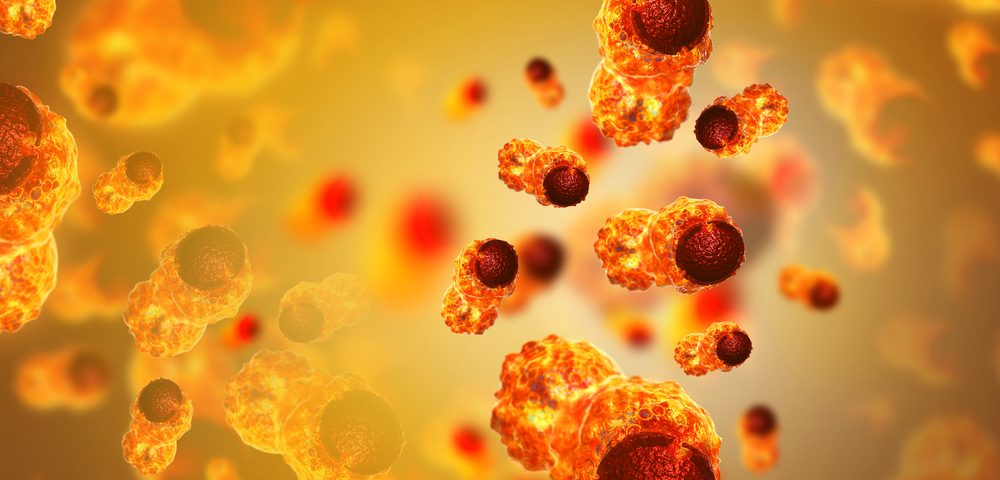Messenger RNAs encoding for the PTEN protein that were carried in tiny nanoparticles to prostate cancer cells in a proof-of-concept study were able to destroy those cells, preventing tumor growth and progression in several mouse models of prostate cancer, researchers report.
PTEN is a potent and well-characterized tumor-suppressor protein, and one encoded by a gene that is lost or mutated in about half of all advanced prostate cancers — aiding tumor cells in growing unchecked. Messenger RNAs (mRNAs) are molecules that contain instructions to make proteins.
The study’s findings, “Restoration of tumour-growth suppression in vivo via systemic nanoparticle-mediated delivery of PTEN mRNA,” were published in Nature Biomedical Engineering.
The work was developed by a team of researchers from the Brigham and Women’s Hospital (BWH) and Boston Children’s Hospital in collaboration with investigators from the Memorial Sloan Kettering Cancer Center.
“The potential impact of this mRNA-based nanotherapeutic is that it offers a new strategy for cancer treatment and can complement currently available therapies such as target inhibitors,” Jinjun Shi, PhD, an associate professor of Anesthesia at BWH and study author, said in a press release.
“Loss or mutation of PTEN has been observed in about half of metastatic castration-resistant prostate cancers [prostate cancer that keeps on growing even when testosterone levels are low] and in many other human cancers, yet the reconstitution of functional PTEN has proven difficult,” Shi added.
The Boston-based research team devised a strategy that allows PTEN mRNAs to be reintroduced into prostate cancer cells, working to activate the body’s natural response against the tumor. To do so, the scientists developed special nanoparticles that are able to transport and deliver mRNAs to the cancer cells.
In this preclinical study, investigators were able to show that PTEN mRNA delivered by nanoparticles successfully infiltrated cancer cells cultured in a lab dish, preventing PTEN mRNA degradation and, consequently, restoring the protein’s normal tumor-suppressor function, culminating in cancer cell destruction.
Restoring tumor suppression also prevented tumor growth and disease progression in multiple mouse models of prostate cancer, including one prone to the development of bone metastases.
Importantly, researchers also demonstrated these nanoparticles are highly stable in blood serum of the mice and were not associated with any toxic side effects.
“This work is the first proof-of-concept of using nanotechnology for systemic delivery of mRNA to restore tumor-growth suppression in vivo, including in the metastatic setting where the tumor burden is widely distributed. Our approach may prove useful in treatment of a myriad of malignancies and for other unmet medical needs,” said Omid Farokhzad, MD, a study author and director of Center for Nanomedicine at Brigham and Women’s Hospital.
These findings demonstrate the anti-cancer potential of PTEN mRNA delivery through nanoparticles, and pave the way for future preclinical studies testing PTEN and other types of tumor-suppressor genes, such as p53, before possibly moving into human clinical trials.
“Because PTEN loss is frequent in late stage PCa [prostate cancer], we suggest that this approach may have feasibility in this patient population,” the researchers wrote.
“[C]onsidering the strong potential of mRNA therapy and the lack of systemic studies of in vivo mRNA transfection [infiltration] of tumours, this study sheds light on the useful application of NP [nanoparticle]-mediated mRNA delivery for validating tumour suppressors (for example, PTEN and p53) as therapeutic targets in the treatment of cancer,” they added.

